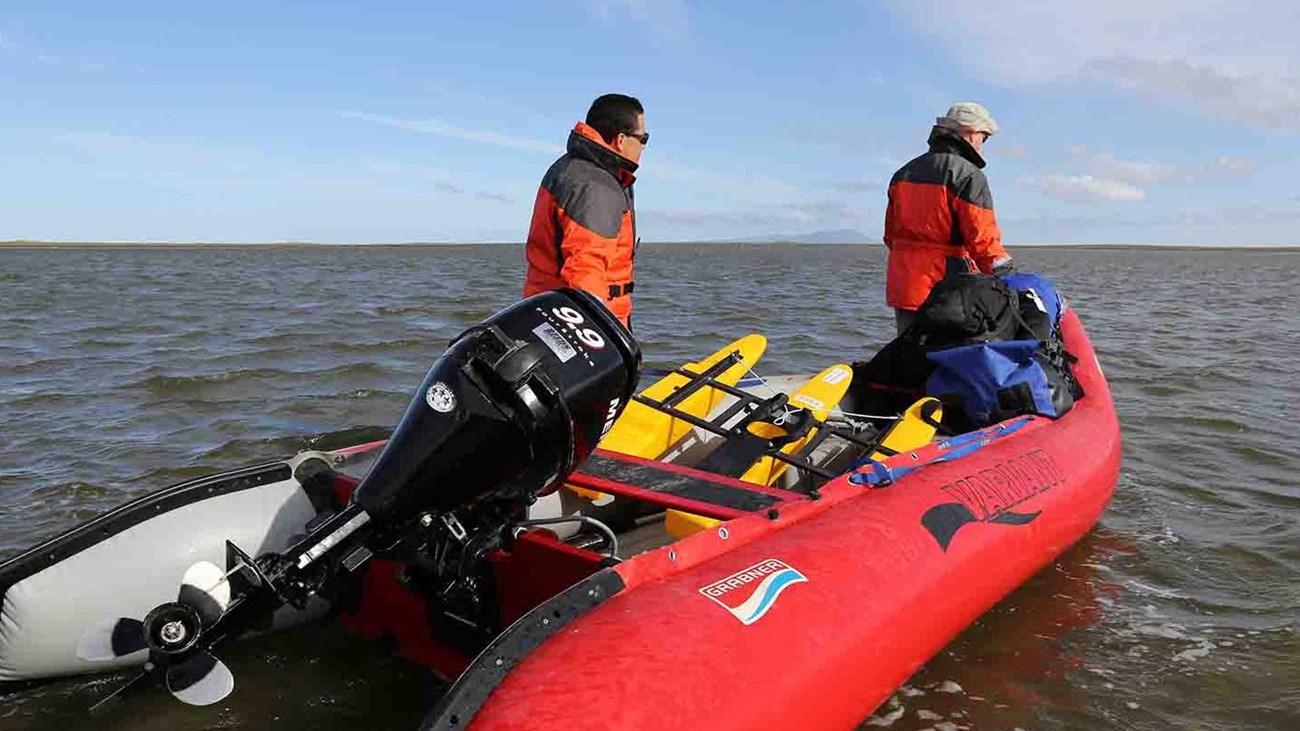
Learn more about a range of coastal and marine issues of concern in this edition of Alaska Park Science.
Learn More
Marine Heatwaves
Marine heatwaves are prolonged periods of time when ocean water temperatures are much warmer than normal. They occur all around the globe and have wide-reaching ecological effects, especially in regions like the Arctic where species depend on cold water.
Learn More
Seabird Die-Offs
Seabirds, such as Common Murres, react to changes in ocean systems, such as the availability of their food sources. As marine ecosystems experience changes in temperature, currents, pH, and other conditions, we are likely to see these changes impact seabirds and other species, too.
Learn More
Harmful Algal Blooms
Seabirds and marine mammals along Alaska's coastline have been experiencing unusually large and consistent die-offs for the past several years, in conjunction with warming ocean temperatures. Researchers want to know if harmful algal blooms, typically associated with warmer climates, are playing a role in these deaths.Learn More
Sea Star Wasting Syndrome
Sea stars can tolerate extreme conditions such as the pounding of waves, heat, and desiccation when exposed during low tide. However, the added stress of unusually warm waters during the 2014-2016 marine heatwave may have made them more vulnerable and facilitated the spread of Sea Star Wasting Syndrome and caused sea star populations in the Gulf of Alaska to crash.
Learn More
Decreasing Sea Ice
Many species in the Arctic are dependent upon sea ice, including people. As the climate warms, sea ice is decreasing, creating difficulty for all species that depend on it.
Learn more
Shipping in the Arctic
As sea ice diminishes, shipping in the Arctic expands. The Bering Strait is a narrow passage that now must accommodate more vessels, in addition to large whale migrations and movement of other marine mammals.
Learn More
Oil Spill Preparedness
With an increase in vessel traffic comes an increased liklihood, or risk, of oil spills. The National Park Service works with coastal communities and other agencies to prepare for an oil spill event in order to minimize impacts and facilitate recovery.
Learn more
Vessel Traffic/Noise
Many marine mammals vocalize to communicate. This communication can be disrupted by underwater sounds from ships and other sources.
Learn more
Ocean Acidification
Ocean acidification impacts marine ecology in a number of ways. It impacts the ability of shellfish to form shells, the formation of corals, and even the behavior and communication of marine animals.
Learn more
Marine Debris
Marine debris includes all kinds of man-made objects discarded, disposed of, or abandoned that enter the coastal or marine environments. The impacts include harm to wildlife from their ingestion of debris or their entanglement in it, contamination from the breakdown of plastics or other chemicals associated with the debris, and socioeconomic impacts related to the degraded environments.
Last updated: July 12, 2023
